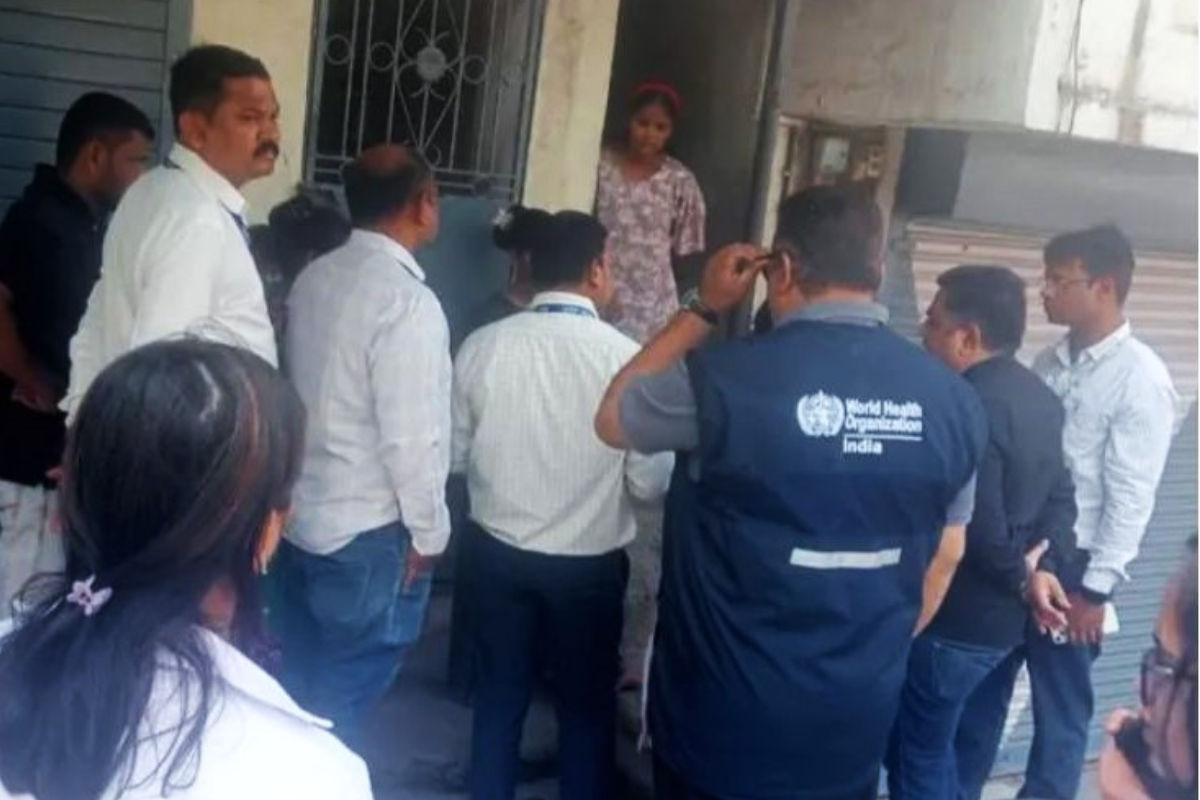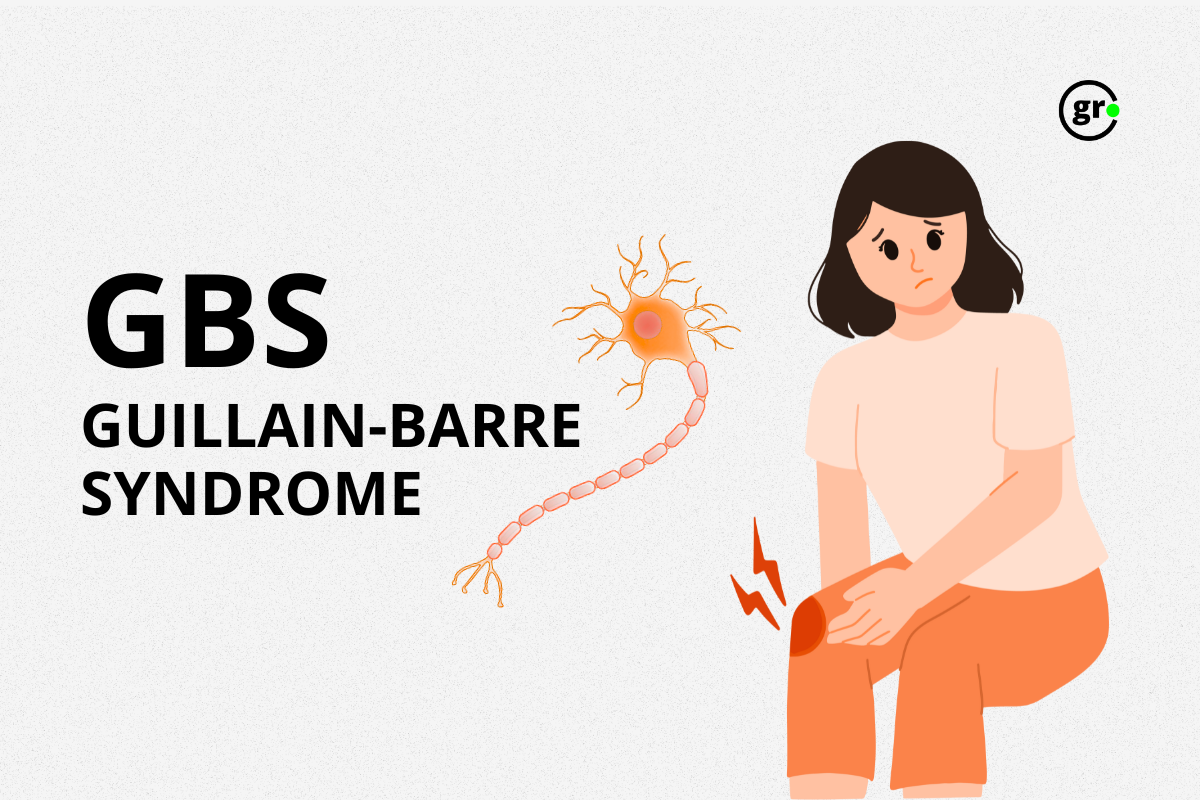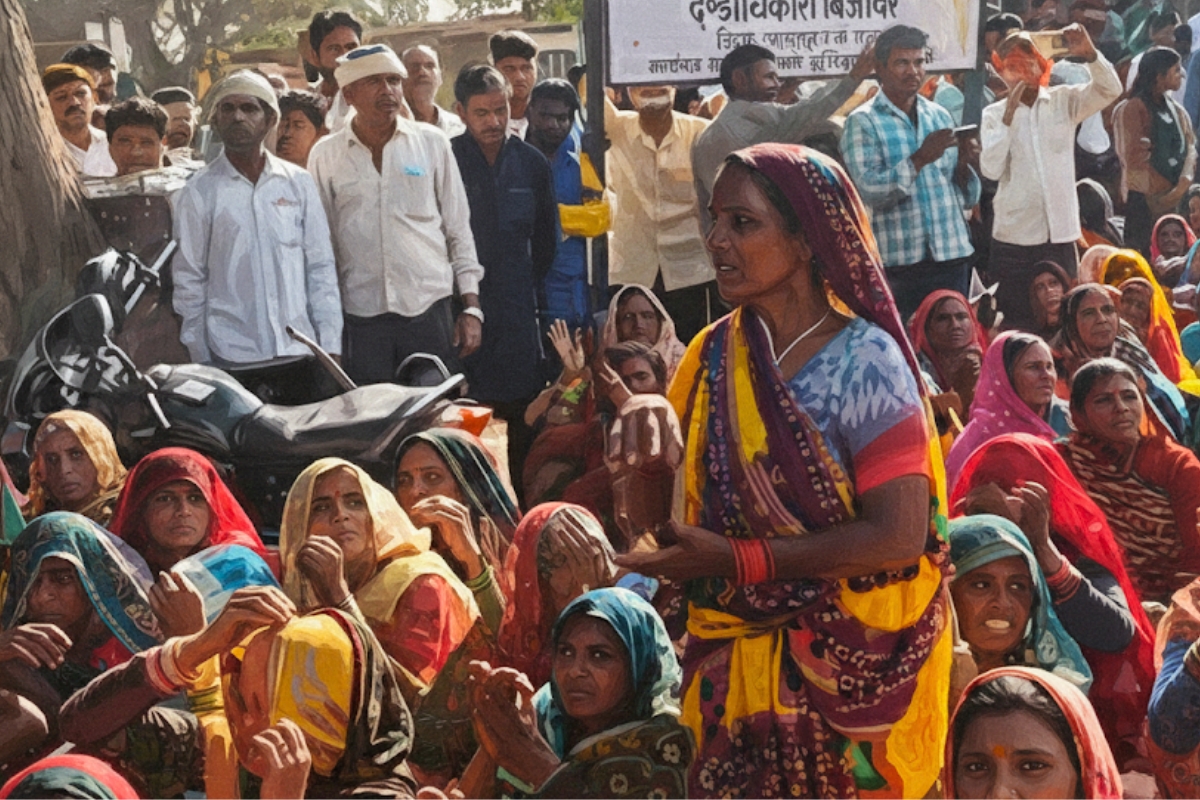It started like any other workday for Ankita Das—until a sharp pain struck her back. She took a few medicines, but the pain didn’t go away. In fact, it kept getting worse. It was 2018, and the then 28-year-old Delhi-based media professional soon found herself in the emergency ward of a private hospital. Doctors referred her to an orthopaedic specialist, but no one could pinpoint the cause. Then, one day, part of her body went numb. As her symptoms escalated, Das saw multiple doctors and tried various treatments. It wasn’t until a neurologist in Noida admitted her to the ICU for a week of tests that she finally received a diagnosis: Guillain-Barré Syndrome—a rare autoimmune disorder where the immune system mistakenly attacks the nerves, leading to sudden numbness and muscle weakness.
It’s been seven years since Das was diagnosed with GBS. At the time, it was considered a rare disease with few known cases. But today, awareness is gradually growing, as more instances are being reported in the news.
This year, Maharashtra reported 224 cases with 12 deaths. Pune was in the spotlight, with a high number of cases reported, particularly in areas like Sinhagad Road. As of early March, the total number of GBS cases in Pune reached 221, with 192 confirmed and 29 suspected cases. A team of doctors from the WHO visited the affected area. According to reports, it is unusual because the number of cases is very high. For comparison, the USA—with a population of 340 million—usually sees only 3,000 to 6,000 GBS cases in a whole year.

“The GBS cases in Pune may be linked to a viral or foodborne infection that triggered the immune system to produce antibodies,” says Dr. Rishabh Malik, a Bangalore-based neurosurgeon who also practises at Manipal Hospitals. “In these cases, the antibodies appear to be mistakenly attacking the nervous system, leading to GBS.”
Malik also mentions that post-Covid vaccination might have slightly disrupted the immune system. However, he stresses that multiple factors could be involved, and no single cause can be confirmed.
Closer home, Madhya Pradesh also reported a few cases of the autoimmune disease. Capital city Bhopal saw 26 cases. To know the current situation, Ground Reporter tried to contact Bhopal’s Chief Medical and Health Officer, Prabhakar Tiwari, but we haven’t received a response yet.
GBS is slowly gaining attention in India as sudden outbreaks, like the one in Pune, put health authorities on alert. From Ankita Das’s baffling medical journey to a growing number of unexplained cases reported in Maharashtra and Madhya Pradesh. The disease is challenging doctors with its unpredictable symptoms and limited diagnostic infrastructure. Though still rare globally, the recent spike in localized infections has raised urgent questions about potential viral or environmental triggers, post-COVID immune responses, and the readiness of India’s healthcare system to identify and manage such autoimmune diseases. Our story tries to explore the complexities of GBS—from its elusive causes and delayed diagnosis to its lasting impact on patients—underscoring the urgent need for greater awareness, research, early neurological care and a survival saga.
Understanding GBS: elusive and rare
In Guillain-Barré syndrome, the body’s immune system attacks part of the body’s peripheral nervous system. This syndrome can affect the nerves that control muscle movement, as well as the nerves that carry pain, temperature, and touch sensations. This may result in muscle weakness, loss of sensation in the legs and/or arms, and problems with swallowing or breathing. This is a rare disease. It is more common in adults and men, but people of all ages can be affected.
The patient suffering from this disease feels tingling or weakness in the legs and hands as the initial symptom. Gradually this experience starts happening in the patient’s arms and upper parts of the body also. These symptoms can develop quickly – within hours, days, or weeks. In mild cases, patients may feel weak for a short period of time, but in severe cases, it can cause paralysis and the patient may find it difficult to breathe on his own. With treatment, most people fully recover from the condition, but it can be life-threatening if the patient has underlying health conditions such as severe diabetes, hypertension, heart disease, stroke, other neurological disorders, or cancer. In such cases, GBS can significantly worsen the patient’s condition, increasing the risk of death—especially among the elderly.
The first case of GBS was reported by French doctor Jean Baptiste Octave Landry in 1859. Even after more than a century, the exact causes and treatment of GBS are still not fully known.
For instance, in Das’s case, she had no prior infection or illness before getting GBS. Also, the disease usually spreads in one direction—either up or down the body—but that didn’t happen with her. Cases like hers show that GBS doesn’t always follow a clear cause or pattern.
Dr. Malik explains that GBS is an autoimmune disease where the body’s own antibodies—meant to protect us—start attacking the nervous system instead. This usually happens after a small trigger, like a virus or vaccine. In GBS, the antibodies mistakenly damage the nerves, especially around the spinal cord.
This condition occurs when the protective covering of the nerves (called myelin) or the nerve fibres themselves are damaged. This damage prevents the patient’s nerves from properly sending signals to the muscles. In addition to weakness, it can cause a sensation like pins and needles, severe pain at night, and problems with body coordination and balance. Some people also have problems with vision, swallowing, speaking, or controlling their heart rate and blood pressure.
The cause and treatment of GBS are not yet clear. Even the World Health Organization (WHO) admits that the causes of GBS are still unknown. However, GBS usually strikes after recovery from viral and bacterial infections.
According to the WHO, the bacteria Campylobacter jejuni, which causes gastrointestinal problems, is one of the main causes of GBS. People can also develop GBS after having the flu or other viral infections, including cytomegalovirus, Epstein-Barr virus, and Zika virus.
Dr. Malik further explains that GBS can be triggered not just by vaccination but also by infections like stomach bugs caused by bacteria such as Campylobacter or viruses like dengue, chikungunya, and those common after the monsoon.
Diagnosing GBS: A trial and error process
Much like the approach seen in the medical drama House M.D., diagnosing GBS often involves a complex process of elimination. Since there’s no single conclusive test for the condition, doctors rely on trial and error—ruling out other possibilities through various tests and observations before confirming GBS.
The World Health Organisation states that there is no specific cure for GBS yet.
Health experts share that treating GBS is challenging because it shows up in many different ways. There are no clear symptoms or patterns. People often experience sudden weakness in the arms and legs, a paralysis-like feeling in the legs, or tingling and numbness. In severe cases, it can cause breathing problems or a weak voice.
If a patient has other health issues like diabetes, high blood pressure, heart problems, stroke, or cancer, GBS becomes more serious and the risk of death increases, especially for older people, shares Dr. Malik.
Das’s case followed a similar path, underscoring the elusive nature of GBS and the pressing need for greater awareness, improved diagnostic tools, and timely neurological care in India. Her journey began with persistent back pain that gradually spread through her body. Soon, the movement of her limbs deteriorated, and later she collapsed. That was the moment she realized something was seriously wrong.
After this, her motor function, i.e., movement of hands, legs, etc., was also disrupted. One side of her face was almost paralyzed. Her right eyebrow was not raising and her eye was not able to close. Eventually, Das started feeling weakness and pain in her hands. Within a week, the disease had spread throughout Das’s body.
Das’s health conditions were so new and different that doctors could not understand them in time. Due to this, her treatment was directed in the wrong direction and the right treatment was also delayed. Ultimately, she reaches a neurologist in Noida with her problems.
The neurosurgeon at the hospital in Noida, where Das was admitted, suspected a stroke. However, the doctors of the neurological department there did not agree with this. Ultimately, it was concluded that these should be treated through medicines and preventive care instead of surgery. However, it was not yet clear to the doctors that Das had GBS.
After this, Das had to undergo many tests again and again. MRI, colour Doppler scan, ECG, NCS VEP, cerebrospinal fluid study (lumbar puncture test), and blood tests were done. Das had 3 MRIs within 6 days. Lumbar puncture, also known as a spinal tap, is a medical procedure where a needle is inserted into the lower back to collect a sample of cerebrospinal fluid (CSF). The complex test can help diagnose various neurological conditions.
Based on the test results, all possible diseases were examined. When no other neurological disease fit the criteria and GBS was the last option, doctors became convinced that Das had GBS. After this, the treatment for GBS was started. Das remained admitted in the ICU in Delhi for a week. After this, Das continued her treatment in Kolkata.
Besides, Das’s treatment also included regular physiotherapy. Das has now completely recovered from the disease and lives with her family in Assam.
“The challenge of its treatment starts from its presentation itself. Actually, it presents in very varied ways. They do not have any definite symptoms or patterns. Usually, people feel sudden weakness in their hands and legs, a paralysis-like condition in both legs, and tingling or numbness. In severe cases, if GBS progresses further, symptoms like respiratory problems and weakening of the voice may appear,” says Dr. Malik.
As a treatment, neurologists usually analyze cerebral fluid. This is the fluid of our brain; specific antibodies are examined in it. However, this test is not available everywhere.
Discussing the recovery and proper diagnosis Malik believes that the patient is in tier-three health centres, medical colleges, or corporate hospitals where there is a neurologist and modern modalities to make a definitive diagnosis; it can be treated.
“It depends on where you are and which health facility you are in. If there is a small health facility at the district level or the current status of a district hospital, then treatment here is definitely difficult,” explains Dr Malik.
Impact of GBS on life
It took about 6 to 7 months for Das to recover from this disease. Even after recovering, Das kept getting it checked continuously to see if any trace of it was left in her body. During a conversation with Ground Report, Das says that GBS has affected her life on many parameters.
Now Das feels that her body’s immune system is weaker than before. As an example of this, Das tells that once she was bitten by an insect. People sick with the bite of this insect usually recover within one to two weeks. But it took almost two months for Das to recover from this.
Das recalls her ordeal with the temporary inability to do minor chores. “I needed help even with simple daily activities like getting up and sitting. Its imprint is still present on Das’s consciousness. Apart from all this, Das is still not completely free from the recurrence of this disease.
Sharing her experience with Ground Report, Das tells us that a few years after her recovery from GBS, she had to undergo an operation. During this time, the doctor informed her as a protocol that GBS could return to her life. Even the slightest possibility of GBS returning was enough to scare Das.
According to health experts, researching diseases like GBS is particularly challenging. Data collection varies across states, many cases go unreported, and some patients discontinue treatment midway. These gaps make it difficult to gather accurate and comprehensive information, complicating efforts to understand the disease’s true burden.
Dr. Malik points out that a major challenge with GBS is the lack of public awareness. Since its symptoms can mimic those of a stroke, timely diagnosis is crucial. He advises patients, “Don’t rely on small clinics for temporary relief. Go to a facility where a neurologist is available or where stroke treatment is offered, because GBS often presents like a stroke. The sooner you reach the right place, the better your chances of recovery.
At the same time, a lack of awareness among the general public about GBS also makes it complicated. Limited awareness about GBS further increases its side effects. People unaware of the symptoms of GBS often reach the right treatment late, and by then, the disease has already spread its roots in the body.
Jeevan Kaneria, a resident of Indore, is a shining example of resilience in the face of Guillain-Barré Syndrome (GBS). At the age of 34, he was diagnosed with the condition and spent nearly 21 months confined to bed. But with unwavering support from his family and relentless medical care, Jeevan gradually found the strength to stand again, both physically and emotionally.
His journey from immobility to recovery has become a symbol of hope for many. Today, Jeevan shares his experience to guide and inspire others battling GBS. He runs support groups for over 1,000 patients across 23 states in India, offering encouragement, practical advice, and a sense of community to those fighting this disease.
Edited by: Diwash Gahatraj
Support us to keep independent environmental journalism alive in India.
Keep Reading
‘Forever Chemicals’ found in all the world’s toilet paper
Trump shuts down staff helping families pay heating bills
Full list of words banned by Trump, including ‘Climate Change’
Oil companies seek Trump’s help to fight climate lawsuits & regulations
Follow Ground Report on X, Instagram and Facebook for environmental and underreported stories from the margins. Give us feedback on our email id greport2018@gmail.com.
Don’t forget to Subscribe to our weekly newsletter, Join our community on WhatsApp, and Follow our YouTube Channel







